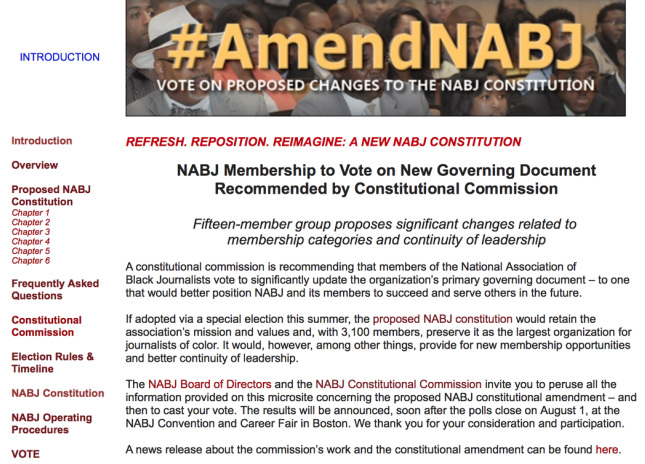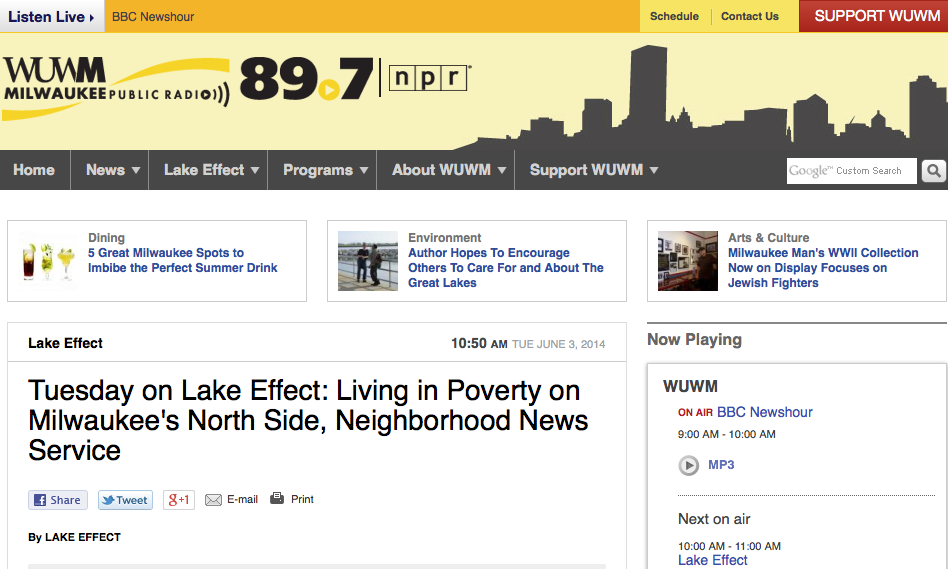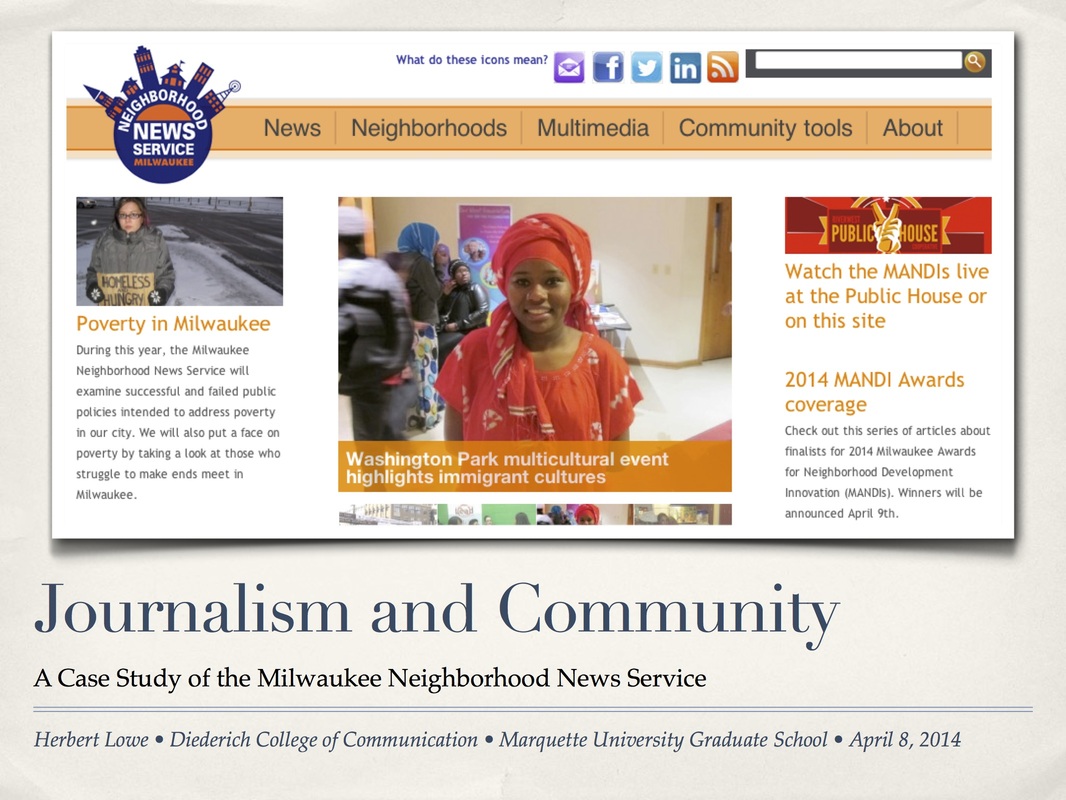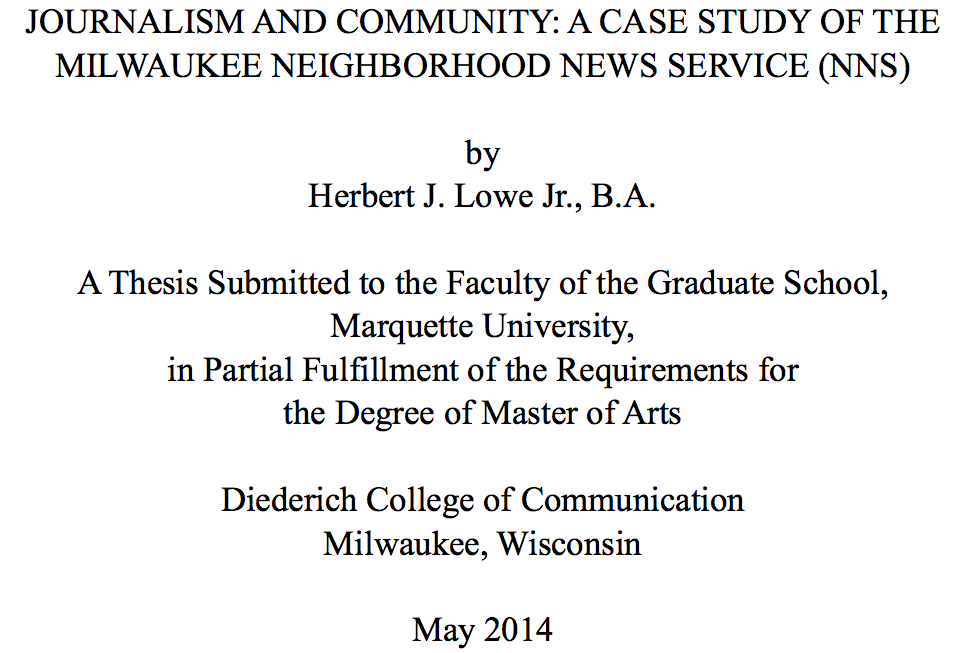The National Association of Black Journalists' primary governing document needs refreshing. We all know how much our industry has changed since 44 men and women founded our now 3,100-member association in 1975. We are approaching our 40th anniversary. Our constitution no longer serves us well. It’s outdated. It’s too constricting. NABJ cannot even change its logo without a constitutional amendment. It needs a new constitution that reinforces its mission, identity and principals without limiting progress.
Last year in Orlando, the membership established a 15-member commission to review the constitution – and propose changes to better position NABJ and its members to succeed and flourish. Its efforts have resulted in a comprehensive overall that affects matters ranging from vision and goals to governance and membership to chapters and regions. Following last year’s convention, NABJ President Bob Butler appointed five members from the Council of Presidents, five from the Founders Task Force and five at large to the commission. The group includes two NABJ founders (Joe Davidson and Allison Davis) and three past presidents (Barbara Ciara, Bryan Monroe and myself). Butler tapped Davis and me to serve as co-chairs.
The commission focused on ensuring that our members, our communities and journalism are best served in the years to come. Wanting an inclusive and thorough process, the commission also sought input from the membership (via webinars and surveys), national office and board of directors, and reviewed mission statements and governing structures of comparable journalism organizations. The board accepted the recommendations in April.
I urge all NABJ members to review the current constitution and proposed constitution. Also review the extensive overview and answers to frequently asked questions offered on NABJ’s website. The proposals are not perfect. They surely will not please everyone. But the commission kept at the forefront that for every member who votes no, two other members must vote yes for the changes to take effect. Hence my mandate: Only put forward that which seven out of 10 members would supported. The webinars and surveys helped with this immensely.
In my opinion, the most vital changes relate to membership. They would, among other things:
- Create an overarching dynamic that embraces anyone who is creating, producing or supervising the creation of journalism, whether one works for traditional or legacy media companies, or as an independent journalist or media entrepreneur.
- Enhance membership opportunities for journalists, journalism educators, those former journalists who have served NABJ and the industry significantly, and those new in the business but who are not yet able to afford the costs of professional membership.
- Remove the “class” concept that certain members are “full” and others are not, particularly with respect to voting on the association’s leaders and initiatives, by creating, for example, such categories as “professional” and “emerging professional.”
Elected leadership is another key concern. The membership’s input made it clear that 1) the board of directors should retain its current size – 14 members – and 2) representation should be based on where we live as much as on what we do. That meant ensuring spots for regional directors and academic and media-related representatives. It also led to a position for vice president-digital. Some may say only one vice president is necessary. Again, the input signaled that not enough members agree. It did, though, stress that digital matters, particularly with start-ups sprouting and more and more members working in digital-only jobs in legacy newsrooms.
The new constitution would also lead to greater continuity of leadership. Beginning in 2017, members could choose to re-elect NABJ’s president to a second two-year term. This change recognizes the learning curve for whoever assumes the presidency. In addition, staggered terms would begin in 2015 so that only half of the board is up for election each year.
The commission also focused on NABJ’s chapters. However, only minor changes are proposed, to more accurately reflect that they are separately incorporated 501(c)(3) organizations. The commission accepts that a proper constitution cannot solve every problem based on day-to-day competencies and capacities. Some matters are better left for NABJ’s operating procedures, which the board can amend at any time.
That’s all for now. Remember, the current constitution and operating procedures provide that only full members as of June 30 may vote on the proposed changes. Online voting begins Monday and ends August 1. The results will be announced at the 2014 NABJ convention in Boston. Please vote to adopt the proposed NABJ constitution – and then continue to hold the association and its elected leadership accountable.




 RSS Feed
RSS Feed
